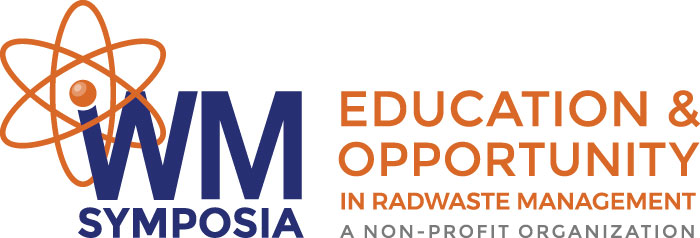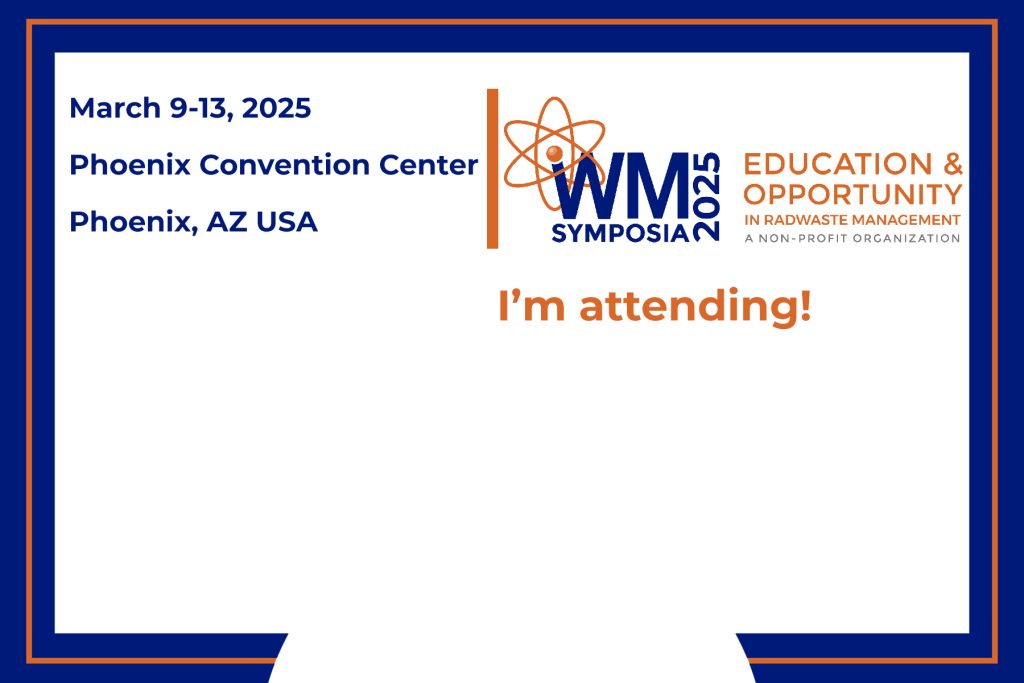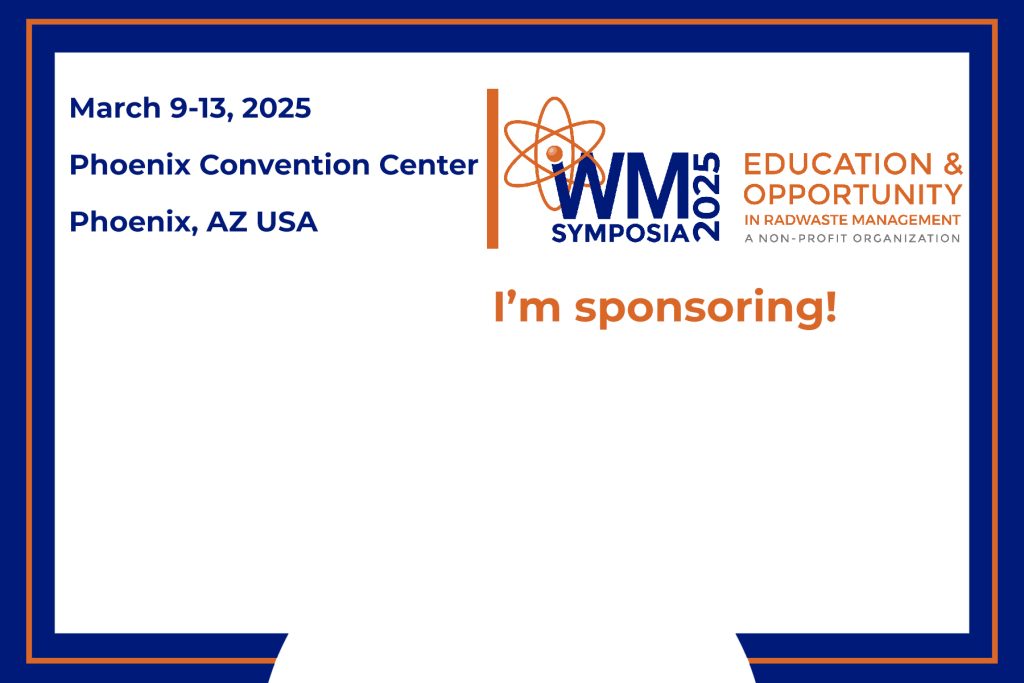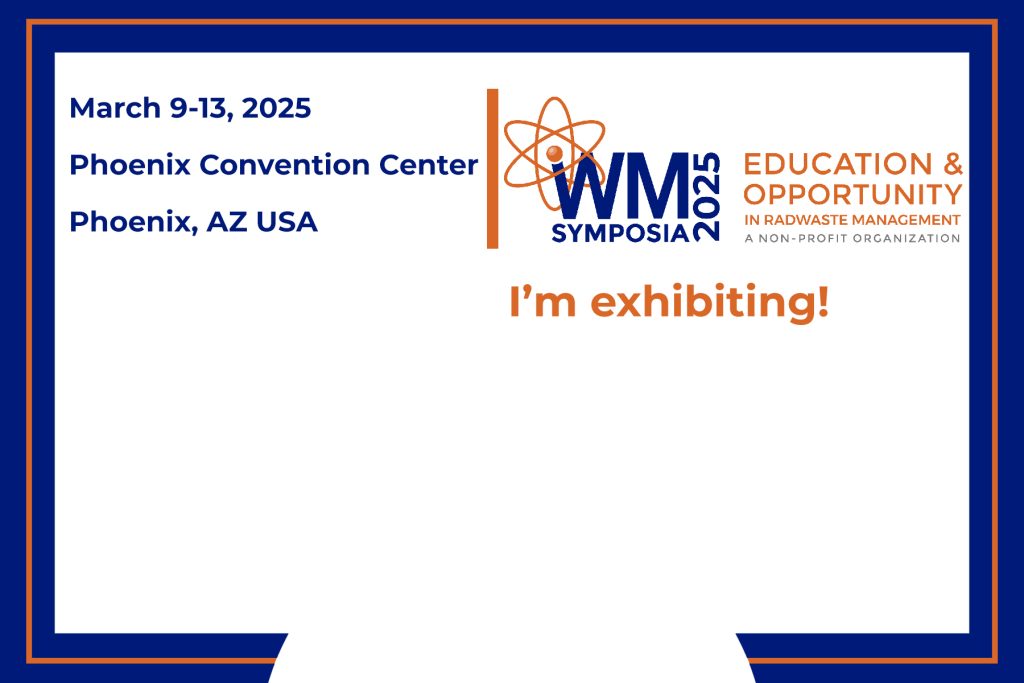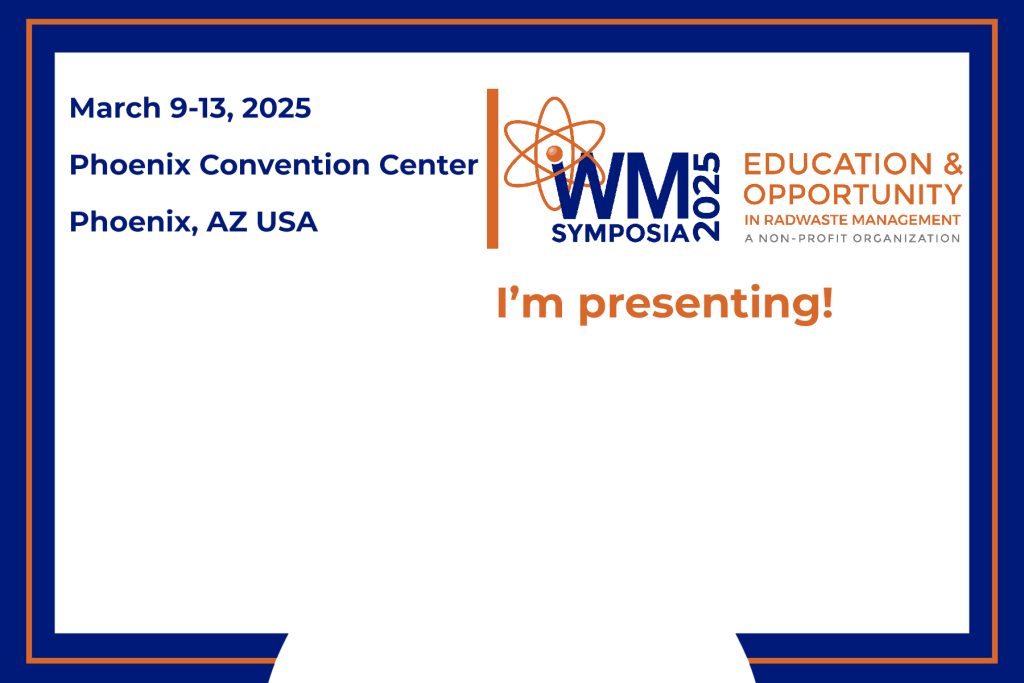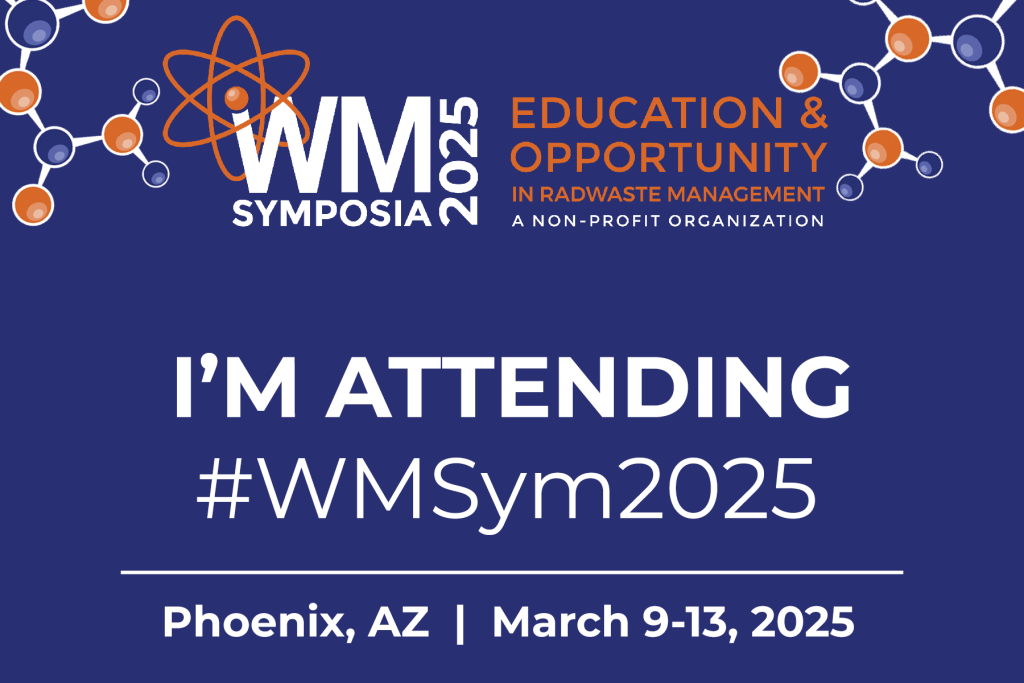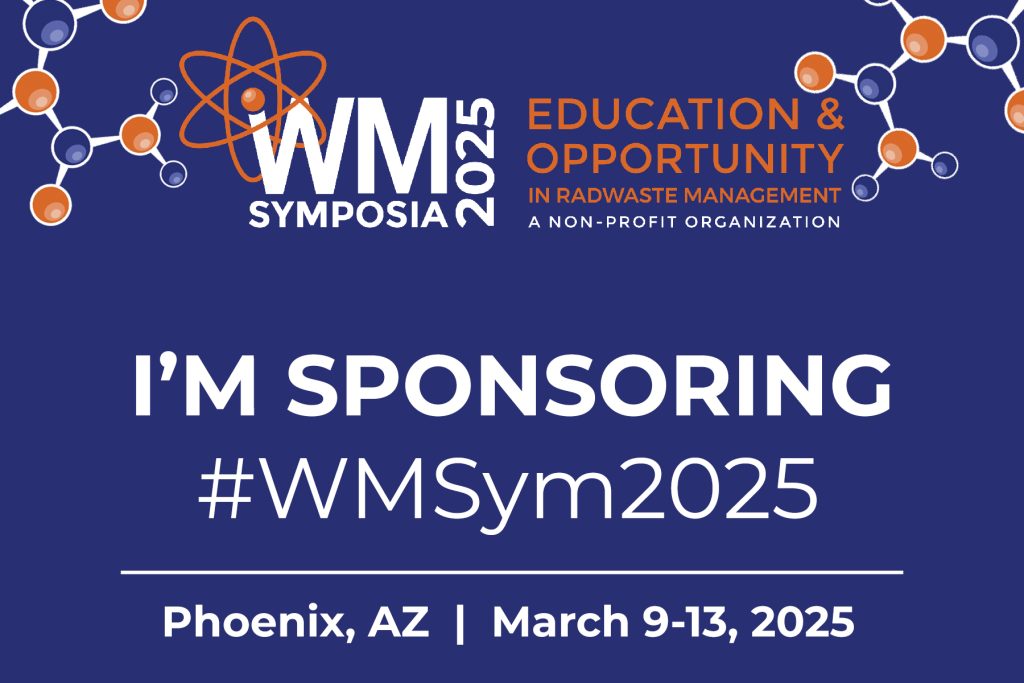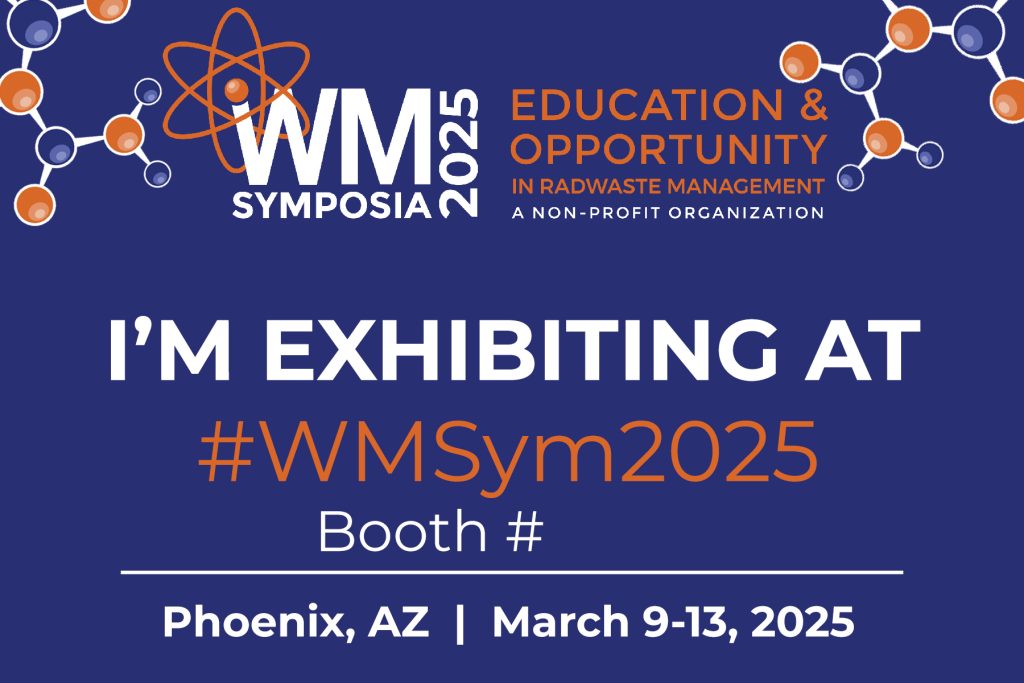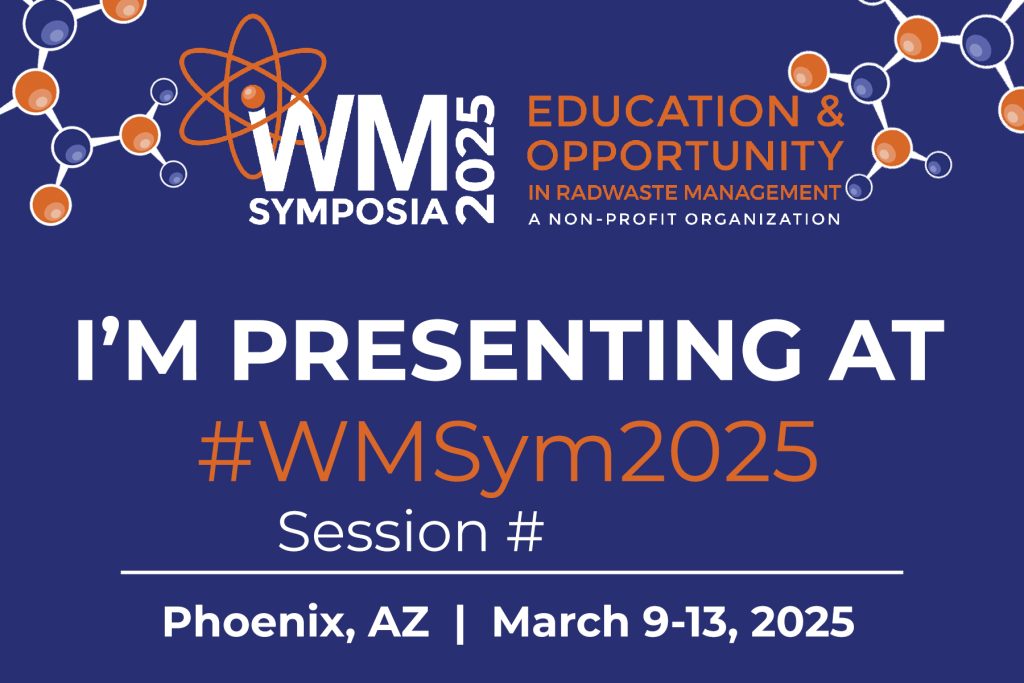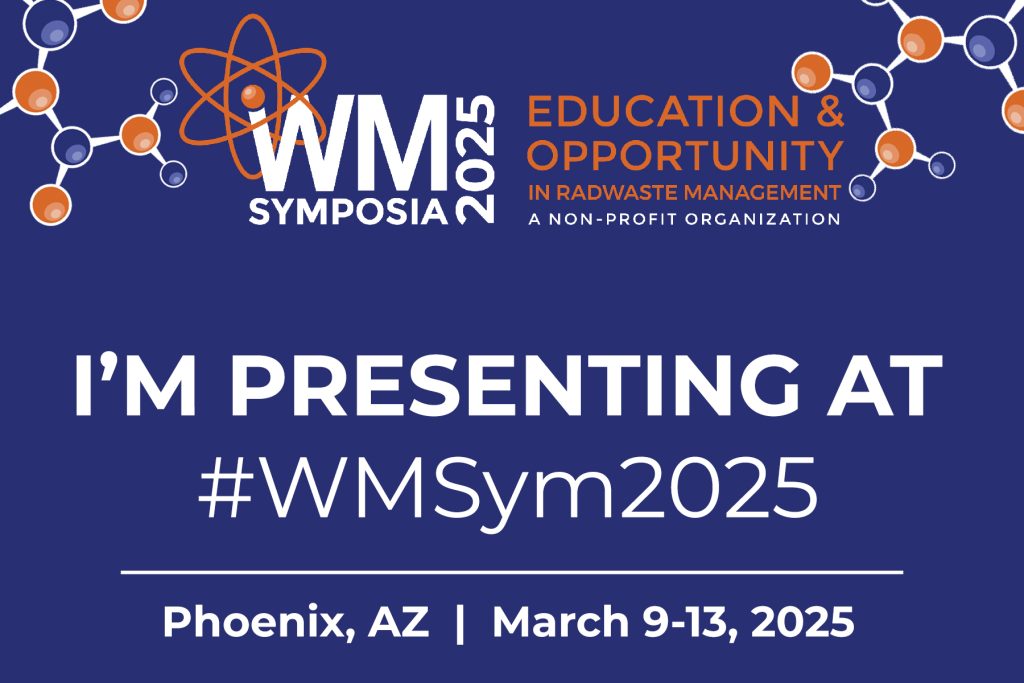
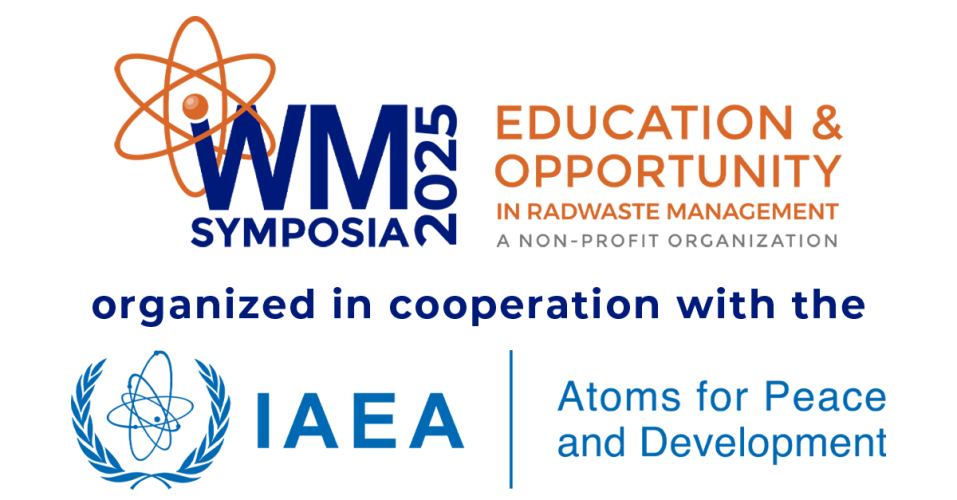
March 9 – 13, 2025
Phoenix Convention Center
Phoenix, AZ, USA
WM2025 Theme: Empowering a Sustainable Future – Advanced Technologies, AI, and Workforce Development Across the Nuclear Landscape
The WM2025 conference cross-cutting theme will highlight how the rapidly evolving digital world is making transformational changes to the worldwide radioactive waste management, nuclear industry, and clean-up sectors. The conference will showcase how the digital world is leading to achieving more efficient operations, improved human-machine interactions, increased safety, and enhancement of data management and analytics. In addition, there will be a focus on remote and emerging technologies from universities, private enterprises, and governmental organizations.
Conference Quick Links
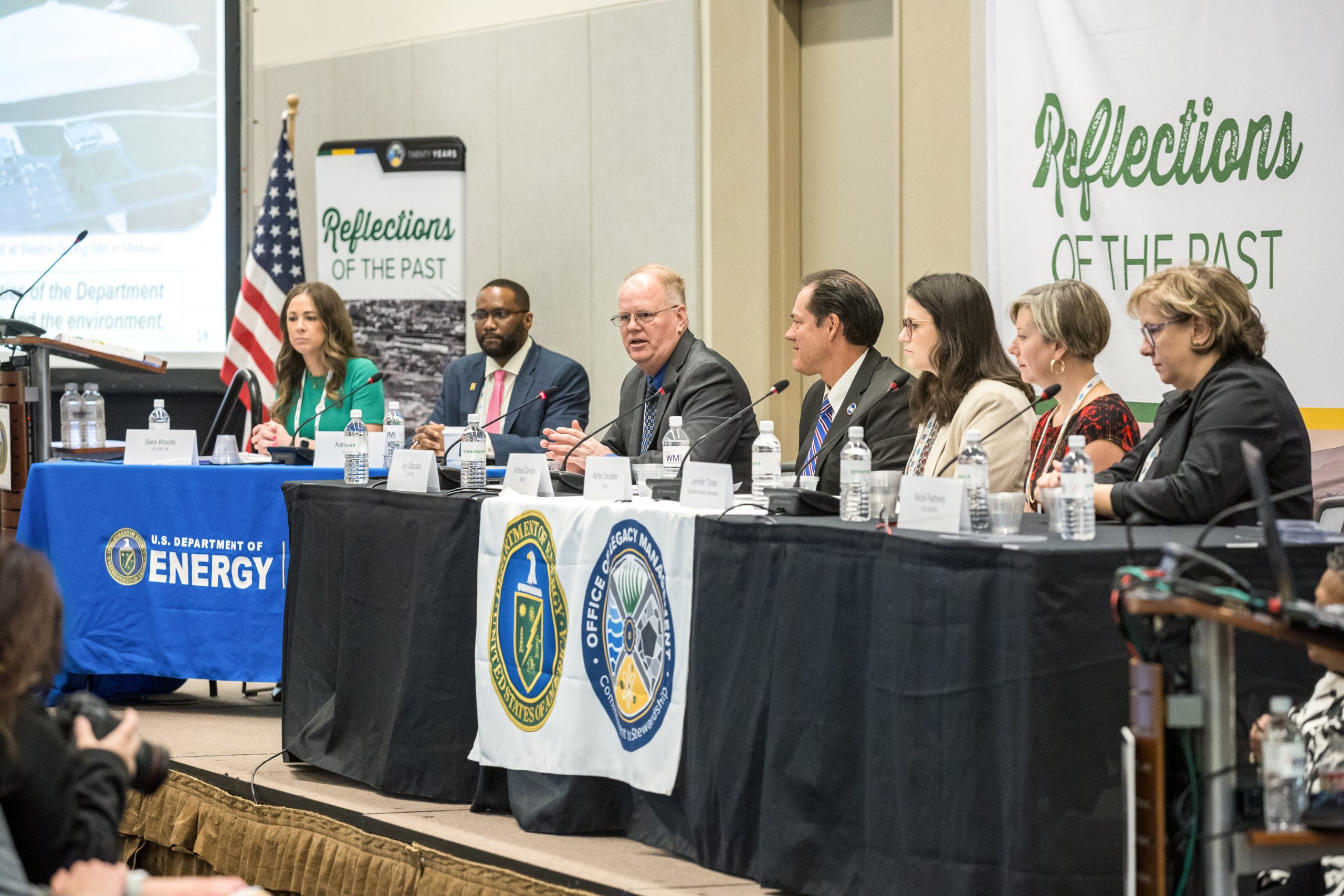
Present
As the global nuclear industry continues to evolve and expand, workforce development has emerged as a critical imperative to ensure sustainability and growth. Approaches being employed by government agencies, private industry, and others to assist in attracting and retaining the work force needed for the future will be explored at WM2025.
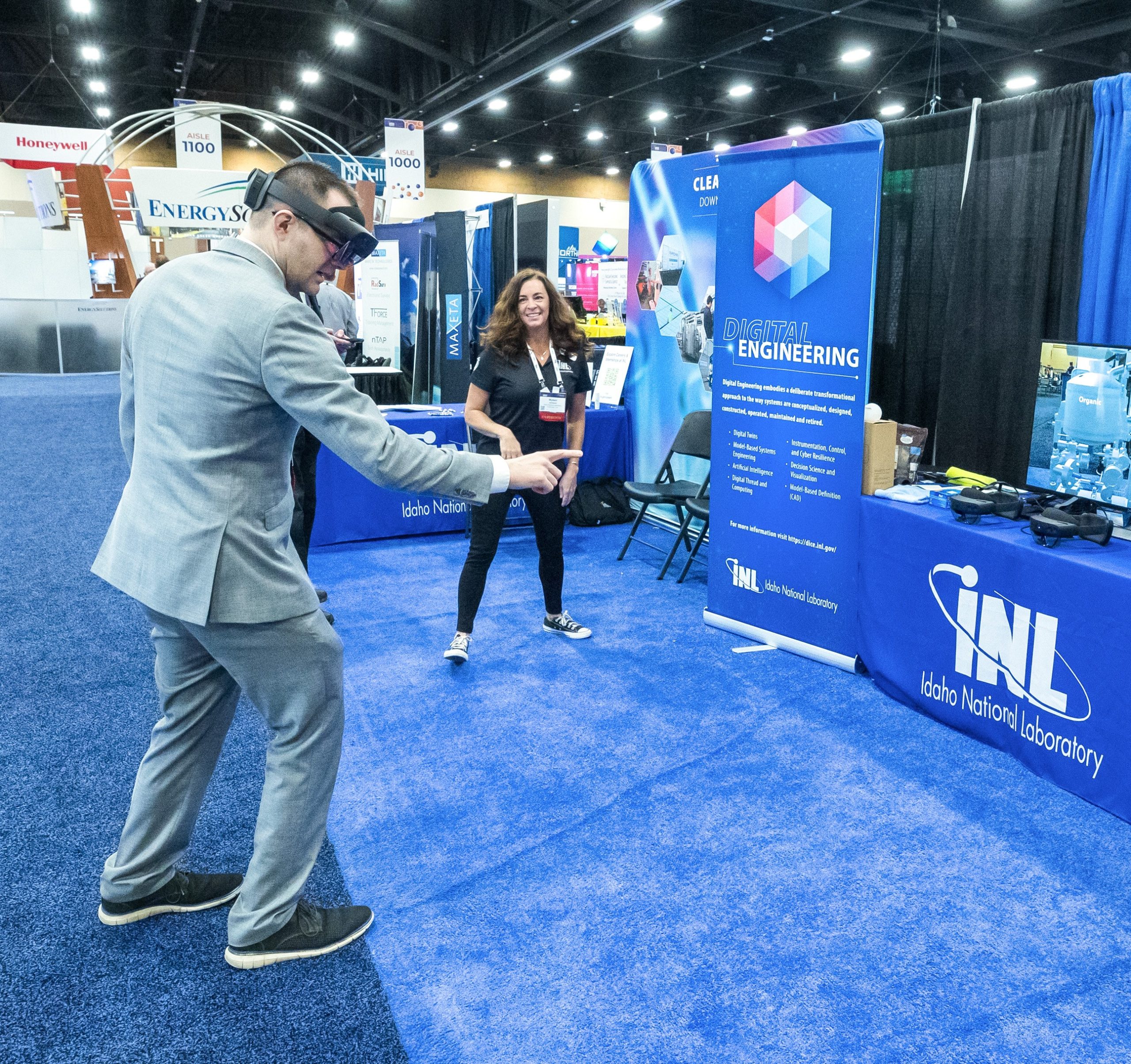
Exhibit
This conference is attended by decision makers, project managers and procurement specialists representing the government and private organizations undertaking the global tasks of radioactive waste management, decommissioning and site remediation. Exhibit at WM2025 to ensure you get in front of industry leaders.
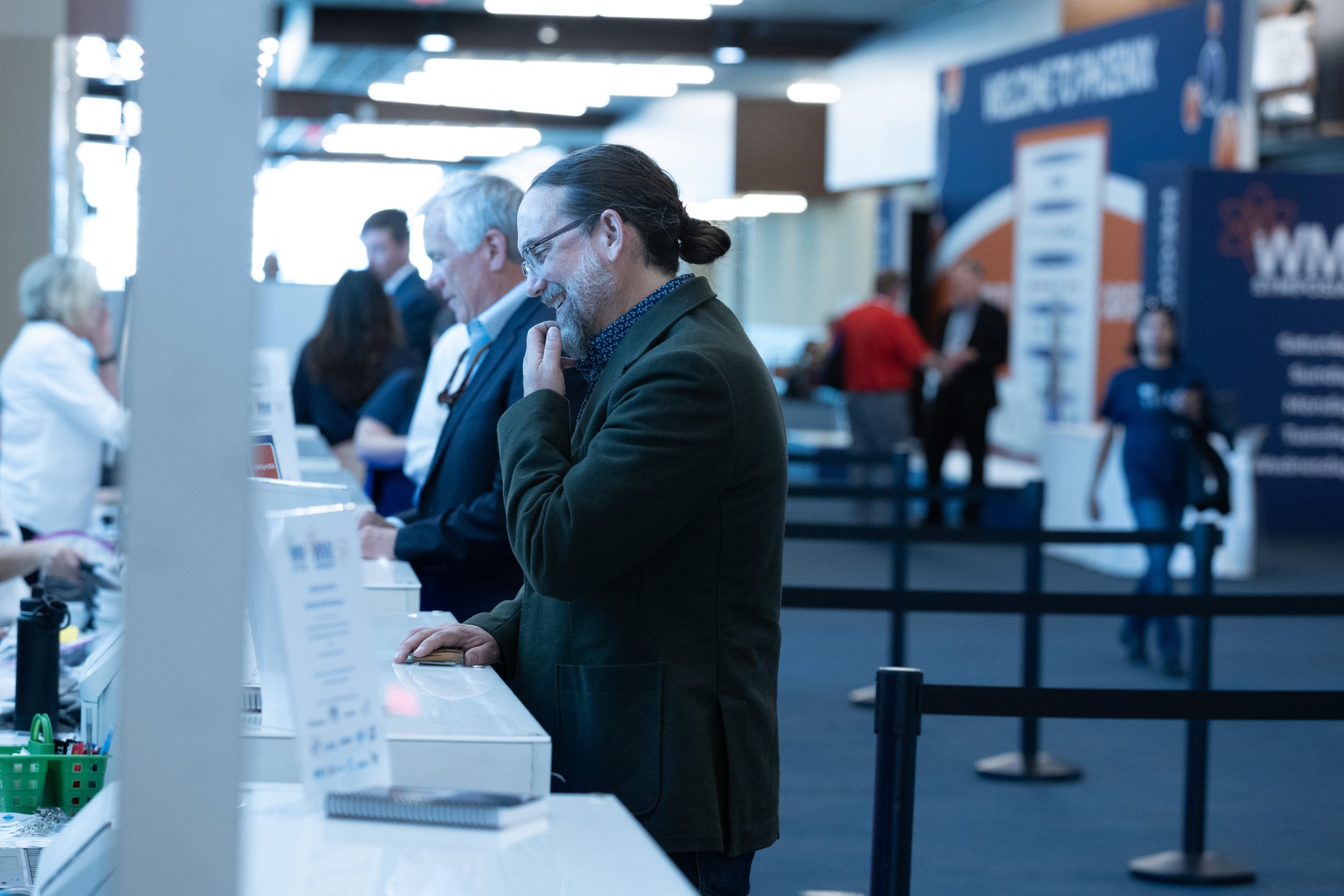
Register
The annual Waste Management Conference, presented by WM, attracts thousands of registrants from around the world and is widely regarded as the premier international conference for the management of radioactive material and related topics. If you are an influencer in the industry, or want to be, then WM is where you need to be.
WM2025 FEATURED COUNTRY

We are excited to have Canada as the WM2025 Featured Country to detail the most recent developments and ambitious plans for radioactive waste management.
FEATURED SITE
Oak Ridge, Tennessee, USA is the US DOE Featured site for WM2025. Weeklong sessions will feature representatives from the DOE Oak Ridge Office of Environmental Management (OREM) and its contractors, United Cleanup Oak Ridge (UCOR) and Isotek, discussing missions, challenges, and success stories. Also, sessions from Oak Ridge National Laboratory (ORNL) and the National Nuclear Security Administration (NNSA) will discuss new technologies, exploring partnerships, and the performance excellence that have made the difference in achieving success.
Important Technical Program Deadlines
November 22 – Deadline for Full-length Draft Papers. Draft papers are submitted and reviewed by members of the PAC in their area of expertise. Extensions beyond this date will be subject to PAC Chair and Paper Reviewer approval.
December 20 – Deadline for Paper Reviewer Comments to Authors – Authors are then given several weeks for any requested updates or revisions and to submit their final paper in January.
January 17 – Deadline for Final Papers and Copyrights
February 21 – PowerPoint Presentations & Posters due for all Presenters
March 9 – 13, 2025 – WM2025 Conference at the Phoenix Convention Center
WM2025 Topic Listing
Presenter Information
WM2025 is pleased to announce two specifically designated demonstration zones located in the Exhibit Hall – The Technology & Innovation Zone and The Drone Zone. These zones support the WM2025 Symposia Cross Track Theme, and provide an ENHANCED OPPORTUNITY to showcase the profound technologies and the swiftly evolving AI enabled digital world that is transforming the global nuclear landscape, supply chains, infrastructure, and work norms of our attendees, program participants and exhibitors!
These areas will require pre-approval . There will be a few opportunities to sponsor the Technology & Innovation Zone, and the Drone Zone. Please contact the WM Exhibit Manager, Jean Cadwell at jcadwell@wmsym.org for more information.
Exhibitors desiring to make use of the designated enhanced demonstration zones must have a current booth within the Exhibit Hall and shall be on a first come first served basis.
- The “Technology and Innovation Zone“, Booth #T10: Measuring 100’ x 50’, this year’s Technology and Innovation Zone is 5 TIMES THE SIZE of that provided in 2018 for the nuclear and industrial robotics conference theme! As before, there will be 10’ x 10’ ‘soft’ booths around 3-sides of the designated Zone. The soft booths will be good for the duration of the conference. Use of the designated Demonstration area will be on a sign-up based, first come, first served, allocated time slot basis, with what is anticipated to be a 10-minute setup time, 20-minute demonstration time, and 10-minute teardown time. Exhibitors making use of the area will be expected to bring their own artifacts, toys, tools, and ‘surface’ enhancements for travel surface cover for use in capability demonstration of their systems. There is a requirement for demonstration of technology and/or services to be solely Theme oriented for use of this demonstration zone.
- The “Drone Zone“, Booth #229: For the first time in WM’s history, an operational flight zone [drone / unmanned aerial system zone] will be available for use. The Drone Zone allocated operations space is 70’ x 70’ x 20’ high. The area includes a 5’ safety corridor along the perimeter of the 60’ x 60’ x20’ netted operating / flight zone. Use of the designated Demonstration area will be on a sign-up based, first come, first served, allocated time slot basis, with what is anticipated to be a 10-minute setup time, 20-minute demonstration time, and 10-minute teardown time. Exhibitors making use of the area will be expected to bring their own artifacts, toys, tools, and ‘surface’ enhancements for travel surface cover for use in capability demonstration of their systems. There is a requirement for demonstration of technology and/or services to be solely Theme oriented for use of this demonstration zone.
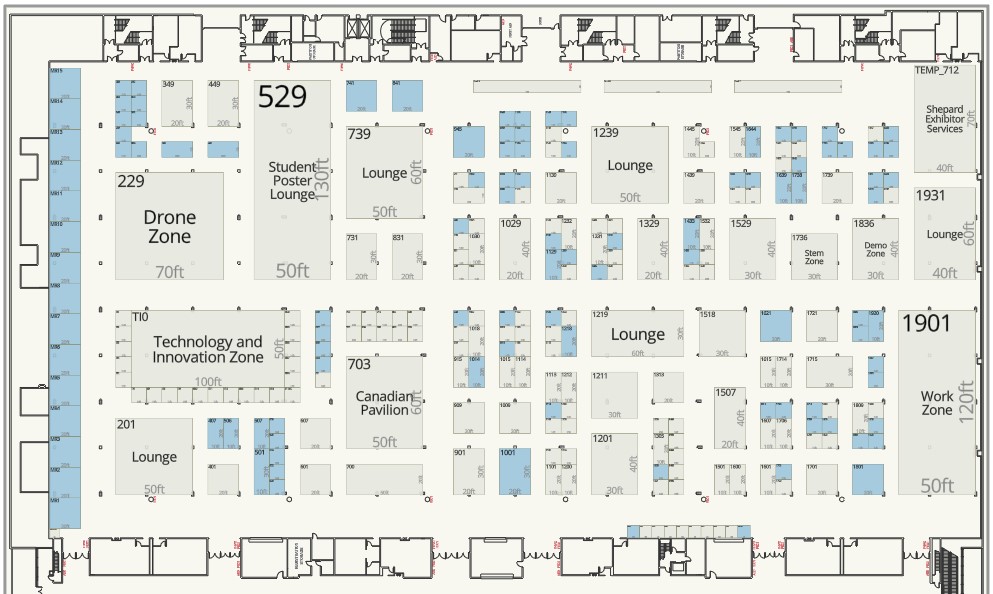
WM2025 Workshops
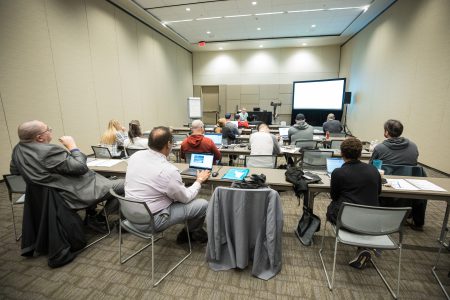
Visit https://roygpost.org/
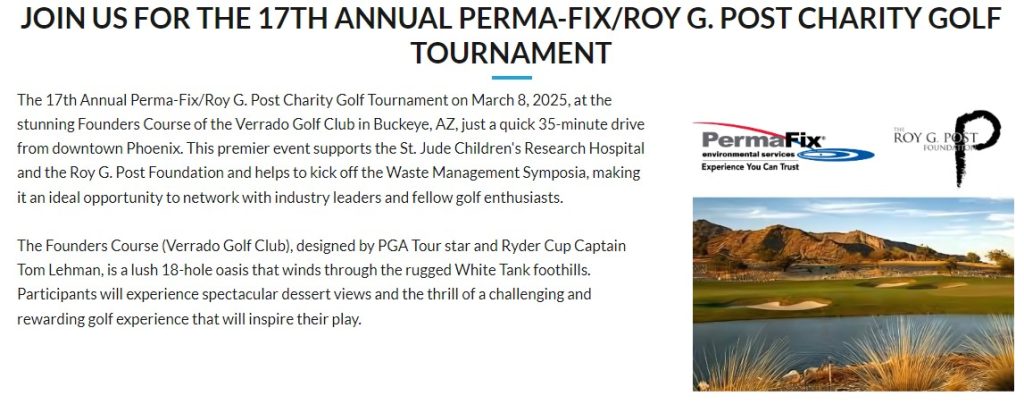
Registration is now open for the 2025 Roy G. Post Foundation / Perma-Fix Golf Tournament! Visit https://perma-fixroy-g-post-charity-golf-tournament.perfectgolfevent.com/ to register.
Share your level of WM2025 attendance by sharing one of our graphics on your social media platforms! Tag WM Symposia and use #WMSym2025 so we can share your post!
Have questions? View our frequently asked questions page or email info@wmsym.org.
